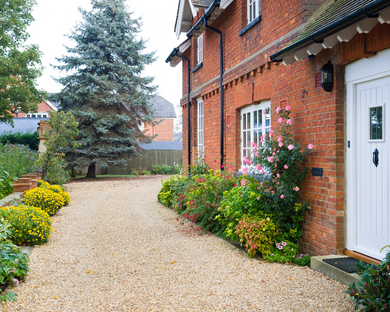Help to Buy is Ending: What are the alternatives in 2023?

Help to Buy has now closed to new applicants. Here’s everything you need to know about the scheme ending and alternative options for first-time buyers.
When is the Help to Buy Scheme Ending?
The Help to Buy scheme (also known as the Help-to-Buy Equity Loan) is ending on the 31st of March 2023. But what most people don’t realise is that the scheme closed to new applicants on the 31st of October 2022.
So, if you were hoping to use help-to-buy, it's too late…
If you didn't manage to get your application in before the deadline, don’t worry. Here’s the run-down on everything Help to Buy, the best alternatives, and how you can buy your first home without the government scheme.
Here’s everything you need to know about Help to Buy ending.
Feel free to jump around:
- How does help to buy work?
- Help to buy pros and cons
- Why is help to buy ending?
- Help to buy alternatives
- How to buy your first home now that help to buy is ending
How does help to buy work?
Basically, the government loans you up to 20% of the purchase price of a new-build home. You’d put down at least a 5% deposit and buy the rest of the home with a traditional mortgage.
So, let’s say you wanted to buy the average UK home (286,000*):
- You’d need a deposit of £14,300 (5%)
- The government would lend you £57,200 (20%)
- You’d take out a mortgage for £214,700 (75%)
The loan is interest-free for 5 years. After that, you’ll be charged 1.75% in interest, but this price will increase every year by the Consumer Price Index (CPI), plus an additional 2%.
Can’t borrow enough with a mortgage to buy the home you actually want? Here are 10 ways to get a bigger mortgage.
Help to Buy Pros and Cons
Help to Buy doesn’t work for everyone. A 5-year interest-free loan sounds like a great deal, but there are a few factors to bear in mind.
Help to Buy Pros
- You only need a 5% deposit
- The government loan is interest-free for the first 5 years
- There is no maximum-income cap
- You have 25 years to pay the loan back in full
Help to Buy Cons
- You can only use the help to buy scheme to buy new-build homes, so your choice of home and location is limited
- You can’t buy a home worth over the regional price cap
- You’ll still need to get a mortgage, so you might be limited by how much you can borrow
- Help-to-buy is not Shariah compliant
- You have to be a first-time buyer to use the scheme
- When you want to buy more of your home, you’ll have to pay extra fees
- Remortgaging can be difficult
- You could fall into negative equity
Why is help to buy ending?
The Help to Buy Equity Loan scheme was always going to end officially in March 2023. When the scheme was revealed back in 2018, the Government announced that it would run from the 1st of April 2021 to the 31st of March 2023.
The reason new applicants had to submit their application by the end of October 2022 is so that they can legally complete on their house before the scheme officially ends. And, as of March 2023, there has been no official announcement of a replacement for the Help to Buy Equity Loan scheme.
Help to Buy Alternatives

Although the Government Help to Buy Scheme is ending soon, you can still get help to buy your first home. We’ll talk you through some of the alternatives, so you can work out the best option for you.
Shared Ownership
Shared Ownership is another government scheme that helps first-time buyers get onto the property ladder. With Shared Ownership, you start by buying 25% of your home and pay rent on the remaining 75%.
But, you’ll be limited to the types of homes you can buy—either a new build home or a resale home:
New build homes
Usually in large developments or areas of regeneration, new builds are the most common type of home to buy with Shared Ownership. One drawback with new builds is that you generally buy your share before the home is built, which means you won’t be able to see it properly until you’ve already bought it.
Resale homes
Resale homes are essentially new builds that someone else has bought through the Shared Ownership scheme. The upside of opting for a resale home is that you can get a better idea of what the home is like before you buy.
Something to keep in mind when it comes to Shared Ownership is that you may need to get a mortgage to buy your home. So, when you’re thinking about how much you can afford, know that you’ll be paying a mortgage (with interest) on top of your monthly rent.
Buying more of your home with Shared Ownership
Like with Wayhome, you can buy more of your home over time with Shared Ownership—this is known as staircasing. The difference is, with Shared Ownership you have to buy at least 1% of the home each time.
So, if you were to buy the average UK home (£286,000), your staircase payments would have to be at least £2,860 (1%).
For some, Shared Ownership may not be flexible enough to buy the home you actually want. See how Shared Ownership compares to Gradual Homeownership to weigh up your options.
Gradual Homeownership with Wayhome
Gradual Homeownership is the new way to buy a home worth 10x your household income completely debt-free, with just a 5% deposit and no mortgage. You buy the part of the home you can afford today, then gradually buy the rest over time with no additional fees.
Plus, there’s no pressure to buy a certain amount with your staircasing payments—you can buy as little as £50 each time.
We don’t believe people should have to compromise on the things that matter to them just to get on the property ladder. Whether that’s:
- moving away from the area you know and love
- buying a 2-bed flat instead of a 3-bed house
- missing out on that garden you’ve always dreamed of…
We believe buying your first home should feel like a step up, not a sacrifice. That’s why we created Gradual Homeownership—so that you can buy the home you actually want in the area you love.
Compare Help to Buy vs Gradual Homeownership to see how they measure up.
How to buy your first home now that help to buy is ending

Help to buy may be ending, but Wayhome is here to stay. There’s no deadline to buy your first home with our help and you can get started whenever you’re ready.
With Wayhome, there’s:
- No new builds
- No mortgage
- No interest
- No risk of negative equity
Find out more about how Wayhome works.

